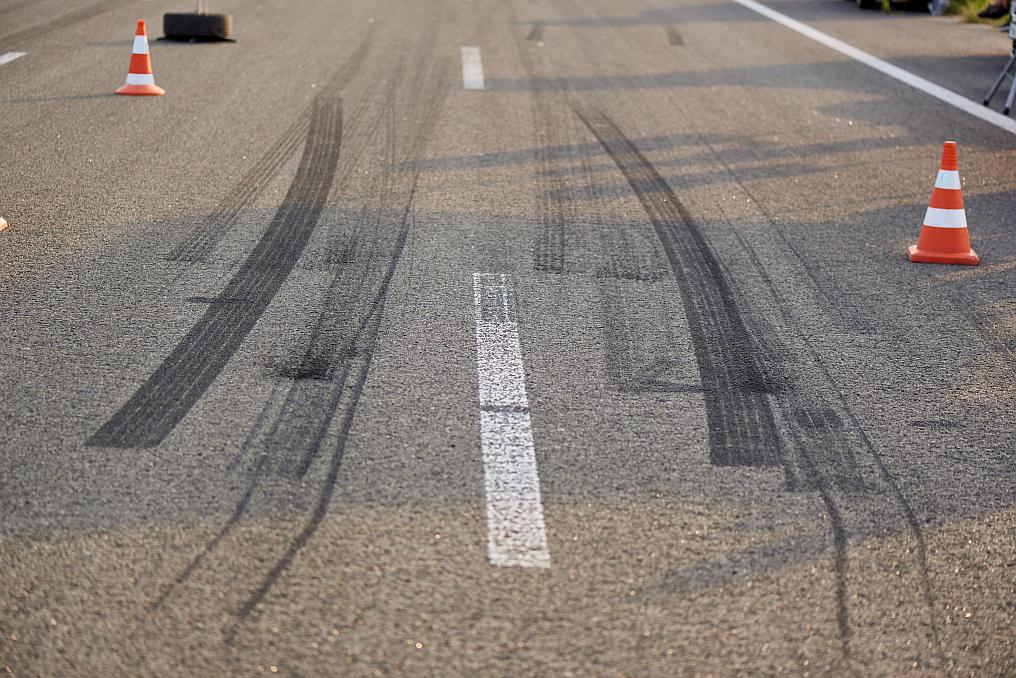For the weeks leading up to summer, people anticipate the sunny days, warmer temperatures, and the outdoor activities that go along with them. After a long winter, the sunny days and warmer nights are a welcome change. In addition, since the sun sets much later during the summer, the longer days mean that people can enjoy a wide range of outdoor activities well into the evening. However, although all of these factors are what make summer so appealing, they can also increase the risk of injury if people are not careful. What may seem like a harmless and enjoyable activity, such as swimming, going to a cookout, or attending Fourth of July fireworks, can quickly become a hazardous situation that results in catastrophic injury. People can continue to enjoy these and other common summertime activities by making safety a priority and keeping some important safety tips in mind.
With significantly more travelers on the road taking trips and visiting friends and family, car accidents are one of the most common summertime-related accidents. In fact, the period of time between Memorial Day and Labor Day is known as the 100 Deadliest Days of Summer, owing to the spike in car accidents during this period of time. Inexperienced teen drivers are at particular risk for being involved in serious car accidents during this time. According to the Centers for Disease Control and Prevention (CDC), teen drivers between the ages of 16 and 19 are three times more likely to be involved in a fatal car accident compared with drivers aged 20 and older.
In addition to the increased number of motorists on the road, there are more motorcyclists, bicyclists, and pedestrians taking advantage of the warm weather to enjoy the open road, go for a bike ride, or take a walk. When a car accident involves a pedestrian, a bicyclist, or a motorcyclist, the injuries tend to be severe, since there is nothing protecting them from the force of the impact, except a helmet if the injured victim was wearing one. Motorists are urged to use extra caution, make sure that their vehicle has been properly maintained, avoid distractions, and get plenty of rest before hitting the road, particularly if they are taking a long road trip.
What are Other Common Summertime Injuries?
In addition to car accidents, there are a range of other activities associated with the warm weather that can increase the risk of injuries. The following are examples of injuries that are also common during the summer months:
- Slip and fall injuries: This type of accident is common during the summer season when people spend more time outside. If a surface is slippery, or a sidewalk is cracked or uneven, there is an increased risk for slip and fall injuries. Depending on the nature of the accident, injuries caused by slip and fall accidents can be quite serious. If the property owner failed to maintain their property or make the necessary repairs to curbs, stairs, sidewalks, or other surfaces, they may be liable for the resulting injuries.
- Burn injuries: There are a range of activities and events during the summer that can cause burn injuries if people do not take the necessary safety precautions. For example, barbecues can cause serious burn injuries that are extremely painful. Children should be supervised at all times when grills are being used. Adults who are using the grill should use caution, avoid any distractions, and pay close attention to the grill. Campfires can also cause serious burn injuries if people get too close to the fire. There is also an increased risk of serious burn-related injuries during the Fourth of July holiday. According to the Consumer Product Safety Commission (CPSC), close to 13,000 people are seriously injured each year in accidents related to fireworks. Although the majority of fireworks injuries are not life-threatening, they can be very painful. In more extreme cases, they can result in lost limbs, such as hands and fingers.
- Boating accidents: If the person operating the boat is distracted, under the influence of drugs or alcohol, or is operating the boat in an unsafe or aggressive manner, the occupants of the boat and other people in the vicinity of the boat are at risk of being seriously injured in a boating accident. In addition, if there are children on the boat who are not wearing life vests, there is a risk of a drowning accident.
- Heat-related injuries: During the summer months, the temperature can get into the 80s, 90s, and even over 100 degrees. The heat index is the so-called feels-like temperature that combines the air temperature with the relative humidity. When the temperature and humidity start to climb, this can cause a range of heat illnesses if people do not take the necessary precautions. Common heat-related illnesses include:
– Heat rash: This is a stinging skin irritation that causes the skin to turn red.
– Heat cramps: These are painful muscle spasms that occur from dehydration and loss of nutrients from excessive sweating.
– Heat exhaustion: Prolonged hours in the extreme heat with not enough water can cause heavy sweating and a fast, weak pulse and rapid breathing.
– Heat stroke: This occurs when the body overheats because of prolonged exposure to extreme heat. When the body temperature reaches 104 degrees Fahrenheit, it can cause dizziness; headache; heavy sweating; a fast, weak pulse; and nausea and vomiting. This is a life-threatening condition that requires immediate medical attention. In extreme cases, heat stroke can be fatal.
- Accidental drowning: According to the CDC, drowning is the fifth leading cause of unintentional death for people of all ages. Unfortunately, 20% of people who drown are age 14 or younger. The CPSC reports that approximately 400 fatalities per year are the result of drowning accidents in pools or spas. That does not include drowning accidents that occur in lakes or oceans. If a drowning accident occurs on private property, the owners of the pool may be held liable for the accident.
- Sports injuries: Soccer, baseball, softball, and track and field are popular sports that children and adults alike play during the warm summer months. In addition to the increased risk for issues such as heat exhaustion and heat cramps from a lack of proper hydration, concussions, sprains and strains, and broken bones are other common sports-related injuries that can occur during the summer months. In severe cases, a serious concussion, or any other trauma to the head, can cause a traumatic brain injury (TBI).
How can I Avoid Injuries Associated with the Warm Weather?
Most injuries can be avoided by using common sense and keeping the following important safety tips in mind:
- Drive safely: Motorists are strongly urged to use extra caution when driving during the summertime, particularly teen drivers who are more prone to accidents. That means avoiding any distractions, getting enough sleep before driving, obeying the rules of the road, always wearing a seat belt, and never getting behind the wheel after consuming alcohol. Motorists should also pay close attention to other drivers, motorcyclists, bicyclists, and pedestrians in the vicinity.
- Stay hydrated: This is one of the easiest and most effective ways to prevent heat-related injuries such as heat exhaustion and heat stroke. It is highly recommended that people drink plenty of water throughout the day, as well as sports drinks that replace electrolytes if the heat index is high and people are engaging in sports or other activities in which they are sweating a great deal.
- Wear the appropriate gear: Safety gear can save lives and reduce the severity of injuries in the event of an accident. From bicycle helmets and seat belts to life jackets and goggles, these can significantly reduce the risk of severe injuries and fatalities during the summer months.
- Sun protection: In order to avoid painful sunburn and reduce the risk of skin cancer, it is highly recommended that people wear an effective sunscreen. The sun is strongest during the hours of 10:00 a.m. and 2:00 p.m., so it is important to protect the skin during this time by using a broad-spectrum sunscreen that protects against all ultraviolet radiation. The sunscreen should have a sun protection factor (SPF) of at least 30 and be reapplied every two hours.
- Use extreme caution near water: When spending time at the beach, a lake, or a pool, safety should be a top priority at all times, particularly when young children are playing in the water. Never leave children unattended by water and only swim in areas where a lifeguard is on duty.
Los Angeles Catastrophic Injury Lawyers at ACTS LAW Represent Victims of Summertime Accidents
If you or someone you know was seriously injured in an accident due to the negligence of another, you are urged to contact the Los Angeles catastrophic injury lawyers at ACTS LAW at your earliest convenience. Whether the injury was related to a car accident, a slip and fall accident, a boating accident, or a defective product, we will fight for the financial compensation you deserve for your injuries. Our dedicated legal team will thoroughly explain the claims process, address all of your questions and concerns, and ensure that your rights are protected at all times. To schedule a free, confidential consultation, call us today at 833-228-7529 or contact us online. With offices located in Los Angeles and San Diego, we serve clients throughout Southern California.


